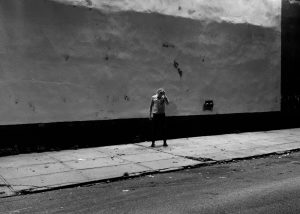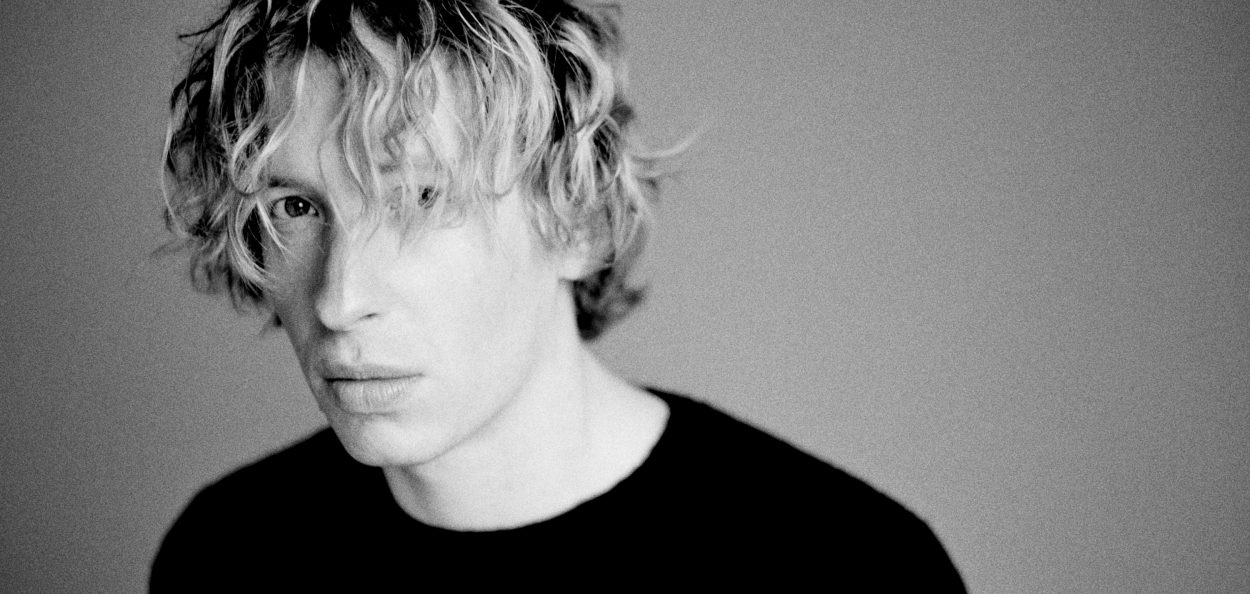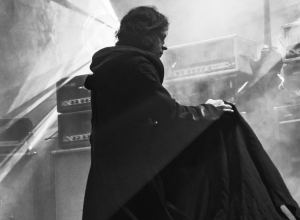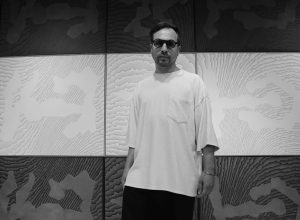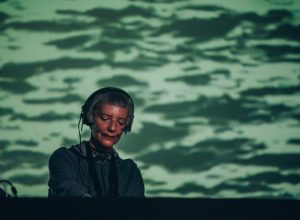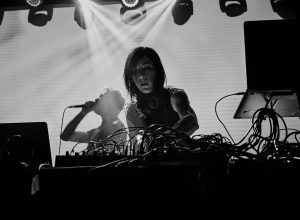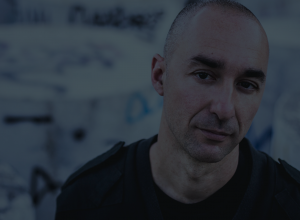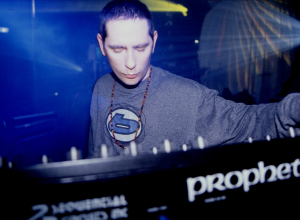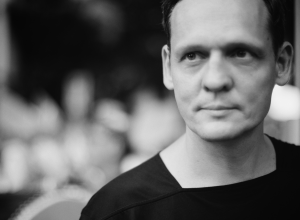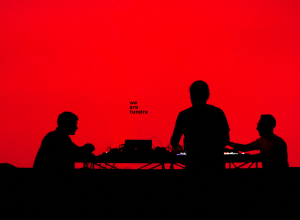“What’s a good mix?” In 2015, Daniel Avery delivered an inspiring RBMA Lecture in Switzerland, in front of a panel of journalists and techno enthusiasts. We had the chance to catch him right after and hear his answer: “A good mix for me is a mix where I can get lost in.” The message, seemingly simple, represents the path that his music took over the years and gives form to what the artistic dimension of DJing is all about: creating the ideal conditions to get lost in the music.
For the British artist, it all started in Bournemouth. Daniel Avery was mainly into rock guitar music, until he discovered a club night called Project Mayhem. The venue immersed him into the alternative side of dance music: he saw the future of punk rock in the early electroclash, and both electrifying genres ended up intertwining in his mind.
The club at the time was looking for a warm-up DJ, he took the job and instantly fell in love with it. While building up his presence in the indie circle, he started producing under the alias Stopmakingme, became resident DJ at Fabric and got closer to well-established artists. Among them, Erol Alkan, the head of Phantasy Sound, and Andrew Weatherall (RIP), the legend of acid house, who incited Daniel Avery to produce Drone Logic, which came out in 2013 and had a massive impact in the dance community.
Along with noticeable EPs, remixes and singles, Daniel Avery came back with two very much awaited LPs: Song For Alpha in 2018, containing cerebral rhythms and richer drone layers, and Illusion Of Time in 2020, a mesmerizing ambient project, featuring no less than Nine Inch Nails synth artist, Alessandro Cortini.
While being the producer of many records, Avery has always considered himself first and foremost a DJ. In this interview, we explore his art form, going through the milestones of his career and having a glimpse into his creative process—including his routines behind the decks and his point of view on social media—as an attempt to unveil more about him and his work as a producer and DJ.
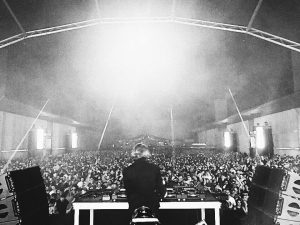
Let’s start with music, could you pick one of your mixes which you find special and tell us why?
Daniel Avery: I’d like to choose my second Essential Mix from 2018. It’s a good indicator of where my head was at during the making of Song For Alpha, trying to find my place between the two worlds of the road and the quiet space away from it.
How do you manage life on the road with your music?
DA: I love the dynamic energy of touring—Drone Logic introduced me to a whole new side of life for the five years that followed it—but it’s only one part of the story. True happiness can only be found in the still moments away from the chaos of the world; everything there is to discover about one’s self lays below the surface level of life. This idea of escaping the noise seemed impossible to me for many years but recently I have started to find my way.
One of the beautiful things about clubs is that they can actually be quiet places. The volume may be loud but the best clubs offer a space to forget about what is outside and to go deeper into yourself. With Song For Alpha, some people misunderstood this idea and thought that I was turning my back on the dance culture that brought me to the scene but the opposite is in fact true, and I was simply finding a new space within that world. I wanted that album to feel like discovering a safe and quiet corner of a rave with your friends, listening to the dull thud of a kick drum through the walls.
Talking about your affinities, how did you exactly cross the road from the stoner rock/metal world to DJing?
DA: I’ve never seen much of a difference between the two. It’s true that the first music I connected with was stuff like Black Sabbath and Nirvana, but the first concert I ever went to was The Prodigy in 1997, aged 11. I’m drawn to music that can have an intense physical impact on the energy of the body whilst letting your mind be free—I think that’s where the major connection lies between the genres.
I’ve always been someone who gets lost in their own thoughts, so I feel a strong connection to any music that can take you to a deeper state. In this way these two musical styles have always comfortably lived next to each other for me. If you want a shorter answer: drugs.
Without particularly preaching about that, if you had the opportunity to travel in time and meet the young DJ Avery, what advice would you give him?
DA: You know, I’d like the opposite: going back and getting some lessons from that eighteen-year-old kid. He had total freedom and was completely uninhibited by the weight of expectation.
I played the same venue every single week, opening the night and setting the atmosphere for the room. I was encouraged to play as wide as possible—it was the complete opposite of being tied to certain BPMs that would traditionally “make people dance.” It’s a form of expression I’ve always tried to maintain throughout the years and it’s the reason why I continue to play all-night-long sets today.
The coolest thing is to see people enter a room and sit on the floor to drone and ambient music only, to be climbing the walls a few hours later in the middle of an acid techno rave. To be able to draw a line between those different styles on the same night is always a goal for me.
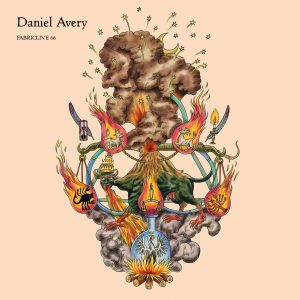
Let’s focus on some highlights of your DJ career and start with your residency at London’s Fabric. Tell us more about your story?
DA: Without Fabric, I probably wouldn’t be here now. Of course, playing there regularly was an education but the most important part of this story is that the club took a chance on me at a very early stage. I first became involved in a night called Kill Em All, suggesting acts to book and handing out flyers. One day the club asked if I wanted to play some music for the warm-up. I managed to do it without messing up and everything evolved from there.
The biggest moment came in 2012 when the club gave me the opportunity to mix a FABRICLIVE CD. This was before Drone Logic and I was still a totally unknown name but the club put their trust in me and believed in what I was doing as a DJ. That mix shone a light in my direction and I’m still very proud of it. I feel I was able to capture my musical style with it. Andrew Weatherall even made an exclusive track for it with his Asphodells project.
For the rest, I never felt too much pressure playing at Fabric because the setup is so beautiful and the sound so perfect. There’s a certain magic in the air, particularly when closing Room 1—that was always my favorite slot. In 2015, the club and I worked together on my own curated residency called Divided Love. The opening night featured Helena Hauff, Dopplereffekt and Factory Floor—it was a mission statement I still very much stand behind. Eventually my own touring moved me away from a regular residency but I still go back and play whenever I can.
In 2016, you made your entry into the long-running DJ-Kicks mix series. When it comes to recording such a mix, what is your creative process?
DA: It was an honor for me to be asked to make a DJ-Kicks mix—I’ve always collected and greatly admired the series—and it came at an interesting time for me. I was in the heart of the recording process for Song For Alpha and my mind was dominated by it. As I mentioned earlier, with that album I was keen to make something that, whilst influenced by the nightclub, was able to tell a story that went beyond it. When DJ-Kicks came along, I took the opportunity to make a ‘companion piece’ to Song For Alpha, something that came from the same world but allowed me to take a breath and give myself some space.
So, with the mix, I decided to focus solely on the rave. I wanted to capture those long, hypnotic moments in a club where you can close your eyes and forget about the outside world. I feel that is the ultimate form of escapism. With that in mind, I created the mix to have a single focus. Something that would keep the listener in a meditative state. I knew that Song For Alpha would be full of dynamic light and color so, whilst it came from the same time and place, I wanted the DJ-Kicks to be more monochrome, like the universe of an old black and white movie you could get lost inside.
The two album covers clearly represent this difference (incidentally they were both designed by the same studio: Matt&Dan). Listening back to both now, I’m happy with how they complement each other and I love hearing the links between the two creative processes. I commissioned the incredible Rrose remix of “Sensation” especially for the mix and also made two new exclusive tracks: “A Mechanical Sky” and “Space Echo“. The entire thing happened incredibly quickly, the deadline was something like five weeks start to finish, which included choosing and clearing all of the tracks. It was recorded over several different live takes and then pieced together on Ableton—all in my studio. It was an urgent process but it felt both natural and necessary at that moment in my life. I’m proud of the final result!
Do you still have dreams to fulfill as a DJ?
DA: As a kid, my dream was to make records that would last forever. To make albums that meant something. I’ve had people asking me to sign vinyl at the end of a night saying things like “before this album, I presumed I didn’t like electronic music but now I go clubbing every weekend.” These are the moments that truly matter to me.
As long as I can continue to make music that connects with people, then I’m happy. DJing is a beautiful medium to share this music with others but I’m definitely interested in other forms. I recently collaborated on an art installation called Falling Light which felt like a natural step and one of the most rewarding things I’ve done. There’s also an idea for a live show that has been brewing in my head for a while now.
Let’s talk about the music you play at your gigs. I recognize a lot of styles in your sets, from ambient and more deeper stuff up to very functional techno sounds. How would you define your style?
DA: I’m not good at describing or even recognizing different sub-genres. All I can tell you is that I am a huge fan of psychedelic music of all forms. I like music that is able to grab you by the hand and take you somewhere else. I don’t mind where it comes from or who made it, I only care about the feeling it gives me. The worlds of ambient and techno mean the same thing to me—they share a hypnotic, otherworldly quality. When I play I would rather see people with their eyes closed than their hands in the air. That’s ultimately what I want to achieve as a DJ.
What are some of your favorite tracks that you often play at a club environment?
Let me share my favorite tracks without commenting them, as I want the listeners to take their own experience from them, untainted by my words. Just know that I adore each artist and… play them loud!
– The Exaltics – Why
– Mor Elian – Move Like Atoms
– Polygon Window (Aphex Twin) – Untitled
– Frak – Synthfrilla
– Lord Of The Isles – Alpha
– Planetary Assault Systems – The Eyes Themselves
– Daniel Avery – Radius (Surgeon Remix)
– Daniel Avery – Fever Dream (Inga Mauer Remix)
How do you organize your music collection? Do you use software programs in your preparations?
DA: I keep everything pretty simple, in just a few folders. They are named with stupid things like Klart, Klass, Trip, Dream, Rush, etc—you can probably guess the meanings. I don’t bother with software programs anymore as they were sending me down boring paths in a club. Not everything needs to be in key, I’m not a trance DJ. The main part of the preparation these days is the delete button. USBs can store thousands of tracks but that’s not particularly useful. I often find myself with far too many tracks in front of me so I continuously go through my folders and only keep the A* quality stuff. In theory, if you only have incredible music in your ‘box’ then you’re bulletproof.
As of your routines in general, how important are social media in your life as an artist?
DA: I like the idea of making a scrapbook or a tour diary that fans can follow; to give a little more insight into my world. Beyond that, it’s tiresome and should not be taken too seriously. The importance some new artists, journalists, and promoters are putting on strong social media opinions right now is painful to watch. It’s often fueled by negative energy and has nothing to do with creativity. I may be part of an old fashioned generation, but I still firmly believe in the power of music itself, everything else surrounding it, is ultimately frivolous. Records will last forever and good ones seep into the lives of others. Their influence will be standing long after today’s technologies have disappeared.
Sounds like social media contributes a lot to the “noise of the life” which you mentioned earlier and to your need for silence. Allow me to make a quick link between silence and simplicity: to what extent do you also seek for these qualities in your productions and DJ work?
DA: Silence is incredibly important in both settings. My favorite part of making music is refining everything I’ve recorded so that you’re only left with the essential elements. I love being able to clear space in a track—it’s those silent moments where the magic occurs. I feel exactly the same way about DJing. Removing the kick drum from a room can have a huge effect. It’s like the entire crowd takes a collective breath. Simplicity or, rather, lack of complexity is a beautiful thing. It is those energies that humans react to the most.
